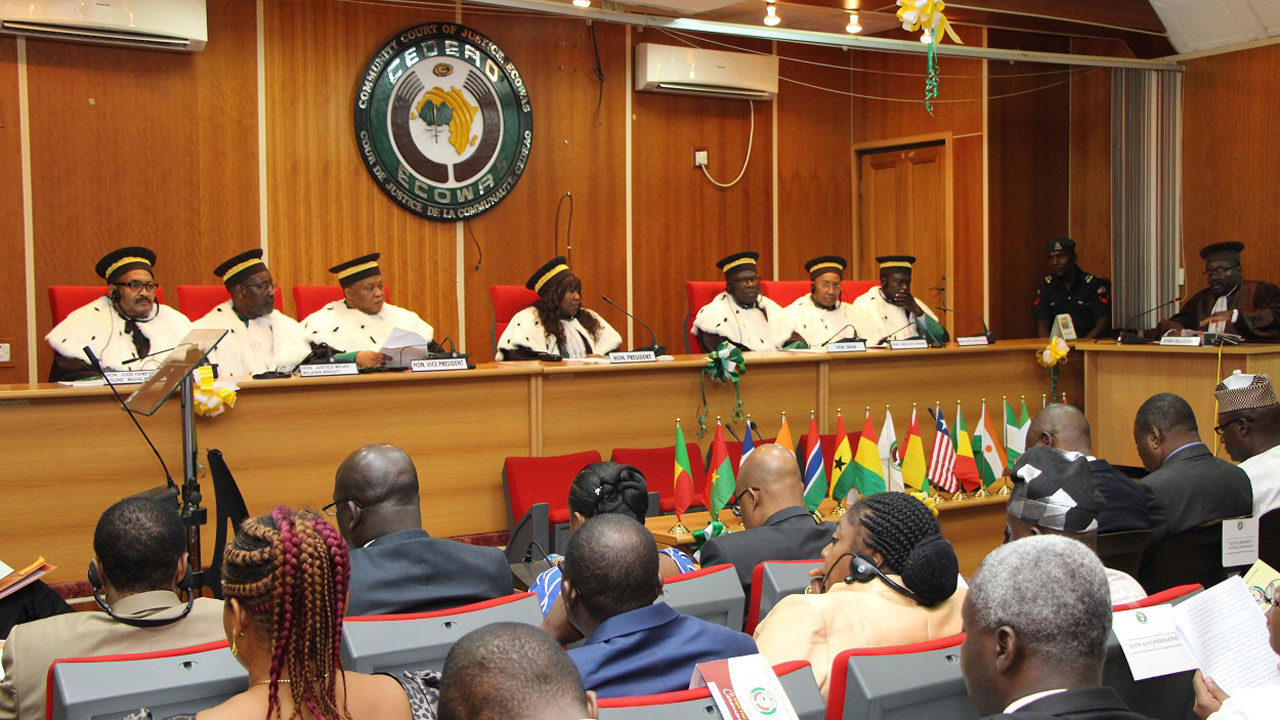Concerns Grow Over ECOWAS Court’s Relevance Amid Disregard For Judgments By Member States

The persistent non-compliance of member states, including Nigeria, with the rulings of the ECOWAS Court of Justice raises serious questions about the court’s authority and effectiveness. This trend threatens the credibility of the regional judicial body, established to promote justice and governance across West Africa.
Recent cases highlight the issue. On October 23, 2023, the ECOWAS Court ruled in favor of an advocacy group challenging sections of Nigeria’s Broadcasting Code, declaring them vague and restrictive to freedom of expression. Despite a six-month deadline for compliance, the Nigerian government has yet to implement the court’s directives. Similarly, a 2021 judgment ordering compensation for journalist Agba Jalingo’s unlawful detention remains unenforced.
A report obtained by Daily Sun reveals that, as of December 2024, Nigeria tops the list of defaulters with 44 unenforced judgments, followed by Togo with 27 and Guinea with 15. Across the bloc, only 34 judgments have been implemented out of 188 issued, underscoring a pattern of selective adherence.
The court, headquartered in Abuja, Nigeria, was established in 1991 under the ECOWAS Revised Treaty. Its rulings are legally binding on all 15 member states. However, enforcement relies on the cooperation of national governments, many of which lack mechanisms to implement these decisions.
Former ECOWAS Court President Justice Edward Asante lamented in 2023 that 70% of the court’s rulings were being disregarded. He urged civil society and legal professionals to pressure governments into compliance. Meanwhile, human rights lawyers like Femi Falana (SAN) and Chief Mike Ozekhome (SAN) emphasize the rule of law and accountability as prerequisites for regional stability.
Attorney General of the Federation Lateef Fagbemi recently argued that some ECOWAS rulings are impractical for enforcement, calling for the court to consider member states’ peculiarities. However, critics like Kolawole Oluwadare of SERAP assert that such arguments undermine the court’s authority and Nigeria’s leadership role in the region.
Experts advocate for reforms, including adopting enforcement mechanisms akin to the European Court of Human Rights, which leverages suspension threats to ensure compliance. Without robust measures, the ECOWAS Court risks losing its relevance as a cornerstone of justice in West Africa.
The disregard for the court’s rulings not only weakens its authority but also jeopardizes the principles of justice and accountability vital for regional cooperation and development.

